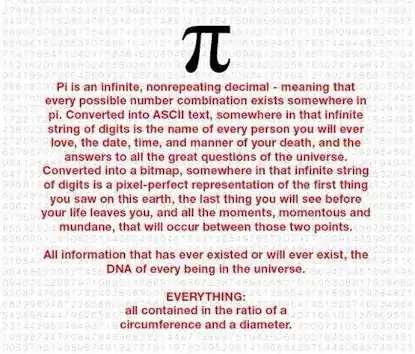This is a post I read about pi while looking for stuff about tau -which is two times as much as pi.

This makes me wonder, why does only pi contain such randomness? Don't other non-repeating and non-terminating numbers (like $sqrt(2)$) also have the same quality? Is this just a silly post that is only being biased towards pi, or is this random behavior only inherent to pi?